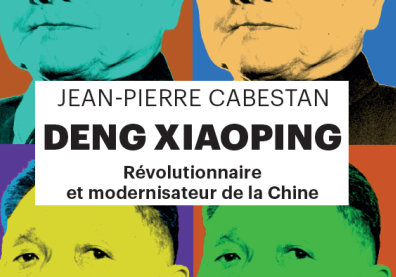Deng Xiaoping. China's revolutionary and modernizer

Table-ronde autour du nouveau livre de Jean-Pierre Cabestan: Deng Xiaoping, Révolutionnaire et modernisateur de la Chine, éditions Tallendier, 2024.
With Chloé Froissart (Professor of History and Political Science in the Department of Chinese Studies at Inalco) and Stéphane Malsagne (Professor of History at Paris I).
Summary
He literally married the Chinese twentieth century. Deng Xiaoping (1904-1997) is still remembered as the great architect of China's economic modernization in the late 1970s. This biography puts his unique trajectory into perspective and questions his legacy in the light of the country's evolution as Xi Jinping's power reaches its zenith and the Cold War with Washington intensifies.
"You see the little man over there, he's very intelligent and he has a very great future ahead of him." So spoke Mao to Khrushchev in 1957, about Comrade Deng. Jean-Pierre Cabestan retraces the career of this veritable political animal: his youth in Sichuan, his formative years in France, his passage to the Soviet Union, his rallying to Mao's guerrilla movement, his rise within the Chinese Communist Party, his key roles and his disgraces... Authoritarian and gifted with a solid sense of survival, he knew how to navigate within the Party and, as a visionary, led his country into reforms to open it up to the world. Why did he bloodily suppress the Tiananmen democracy movement? What lessons did he draw from the collapse of the USSR? What legacy did he leave behind? While Xi's China is putting Mao back on the map, today's intellectuals and reformists feel closer to Deng. One hundred and twenty years after his birth, the "little man", whose career took a thousand twists and turns, remains a sensitive and lively subject. That's what this enlightening biography is all about.
Biography
Jean-Pierre Cabestan is a French sinologist, specializing in the law and institutions of the contemporary Chinese world, both in People's China and Taiwan. He is Director of Research Emeritus at the CNRS and Professor Emeritus at Hong Kong Baptist University. He is the author of several books, including Demain la Chine: guerre ou paix? (2021).